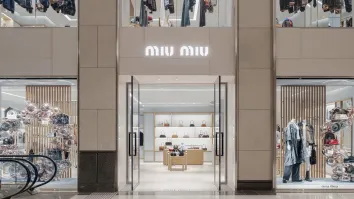Foodpanda: Fast delivery now a retail necessity
Foodpanda’s Christian Urban explains innovative approach towards quick commerce services with over 200 major retailers and 2,000 outlets going live.
Foodpanda, a leading online food and grocery delivery platform, has witnessed a significant boost in quick commerce services as over 200 major retailers, encompassing a total of 2,000 outlets, have recently joined the platform.
This surge highlights the fundamental changes in consumer preferences and demands within the food and retail industry, according to Foodpanda director of marketplace, Christian Urban.
In an exclusive interview, Urban told Retail Asia magazine, that the rise of urbanisation and the increasing number of small or single households have contributed to a greater demand for the delivery of products in smaller quantities.
He pointed out that consumers these days prefer the convenience of receiving their orders quickly, whether it be for food, groceries, or other retail products.
“They want to have this full offering. They also expect the fast, free experience to be honest at every step of their shopping journey, from discovering and browsing to checkout. The delivery experience should be seamless with easy accessibility to after-sales support if needed,” he said.
But even as rapid delivery and convenience have become paramount, retailers still face challenges in ensuring their supply chain can support such services.
In this regard, Urban said that collaborating with third-party logistics players is not enough. “Retailers need to ensure that all aspects of their supply chain are able to support rapid delivery accordingly,” he said.
For retailers, this highlights the need to update their inventory management systems, establish streamlined processes for picking, packing, and shipping, and provide resolutions for post-sales inquiries and disputes.
These operational modifications require substantial investments in manpower and time, posing a significant challenge for companies embracing quick commerce. “Operational modifications can be costly, but it’s crucial to meet future consumer demands,” Urban said.
In order to bridge the gap between existing services and future consumer demands, he strongly suggested that retailers digitise their operations.
Digitalisation offers multiple benefits, including increased efficiency, better data analysis for procurement and sales strategies, and improved internal processes, he said.
He also stressed that fast delivery is no longer just a “good-to-have” feature; it is increasingly becoming a necessity. And looking down the next five years, the trend toward quick commerce and the demand for fast and personalised services will continue to grow stronger.
As a leading tech company in Asia, Foodpanda is constantly innovating and preparing for the future. “We’re constantly innovating to enhance customer experience and expand choices on Foodpanda. From introducing pick-up and self-collect services to a diverse array of retailers and products, we're shaping the future of quick commerce,” he said.
To assist retail brands in adapting to the rapidly evolving landscape, Foodpanda provides a vendor environment that facilitates quick onboarding and scaling of the quick commerce business.
They offer a technical marketplace and vendor portal where merchants can easily connect their catalogs, pricing, and offerings, resulting in efficient onboarding.
Additionally, Foodpanda offers cross-vertical participation, including marketing campaigns, panda ads, and exclusive events for merchants.
As quick commerce gains further momentum, Foodpanda remains at the forefront, ensuring that both retailers and consumers can benefit from fast and personalised services.
“At Foodpanda, we’re focused on customer value and expanding variety. Our tech-driven marketplace enables quick onboarding for vendors, offering a seamless online experience for consumers. Innovation is at the core of our vision for the future,” concluded Urban.



















 Advertise
Advertise







Commentary
The festive season is a revenue moment – don't let friction or fraud derail it